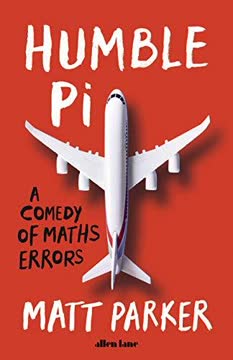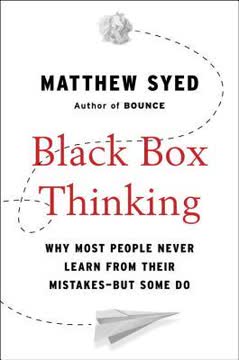Searching...
Top 10 Books on Embracing Error and Learning from Mistakes
Discover 10 insightful books that explore the importance of error, failure, and learning in personal and professional growth.
Book Summaries
The Hidden Role of Chance in Life and in the Markets
Nassim Nicholas Taleb's exploration of randomness and luck challenges readers to rethink their understanding of success and failure, emphasizing the often-overlooked role of chance.
3 Key Takeaways:
- Randomness Often Masquerades as Skill in Financial Markets
- The Narrative Fallacy: Our Tendency to Create Stories from Random Events
- Survivorship Bias: We Only See the Winners, Not the Losers
Why So Many Predictions Fail - But Some Don't
Nate Silver's exploration of prediction and uncertainty provides valuable insights into why many forecasts fail, encouraging readers to think critically about data.
3 Key Takeaways:
- Prediction requires balancing signal and noise
- Overconfidence leads to poor forecasts
- Bayesian thinking improves predictions
Making Smarter Decisions When You Don't Have All the Facts
Annie Duke, a former professional poker player, applies her expertise to decision-making, teaching readers how to navigate uncertainty and improve their choices.
3 Key Takeaways:
- Life is more like poker than chess: embrace uncertainty
- Our beliefs shape our decisions, but they're often flawed
- Resulting: the dangerous habit of judging decisions by outcomes
A Comedy of Maths Errors
Matt Parker's humorous take on mathematical errors makes complex concepts accessible, showing how small mistakes can lead to significant consequences in everyday life.
3 Key Takeaways:
- Mathematical errors can have profound real-world consequences
- Small mistakes in calculations can lead to catastrophic results
- Rounding and unit conversions are common sources of errors
Why Some People Never Learn from Their Mistakes - But Some Do
Matthew Syed, a bestselling author and speaker, delves into how embracing failure can lead to innovation and growth, using compelling examples from various industries.
3 Key Takeaways:
- Failure is essential for progress and innovation
- Aviation embraces failure, while healthcare struggles
- Cognitive dissonance hinders learning from mistakes
Adventures in the Margin of Error
Kathryn Schulz's exploration of human error reveals how mistakes are not just inevitable but essential for personal growth and creativity, making it a thought-provoking read.
3 Key Takeaways:
- Embracing error as a fundamental aspect of human nature
- The paradox of error: inevitable yet unacknowledged
- Our senses and minds: sources of both insight and illusion
Controlling the Human Element of Security
Kevin D. Mitnick, a former hacker turned security consultant, reveals how human error can lead to security breaches, emphasizing the importance of awareness and training.
3 Key Takeaways:
- Social engineering exploits human psychology to breach security
- Trust is the foundation of successful social engineering attacks
- Information gathering is crucial for crafting convincing pretexts
Why Smart People Make Dumb Mistakes
David Robson's insightful examination of cognitive biases reveals why even the smartest individuals can make poor decisions, offering strategies for better judgment.
3 Key Takeaways:
- Intelligence alone is not enough: The paradox of smart people making stupid mistakes
- Dysrationalia: When high IQ fails to translate into rational thinking
- The curse of expertise: How knowledge can blind us to new information
The Science of Failing Well
Harvard professor Amy C. Edmondson provides a framework for understanding different types of failure and emphasizes the importance of psychological safety in learning from mistakes.
3 Key Takeaways:
- Failure is inevitable and essential for growth and innovation
- Distinguish between basic, complex, and intelligent failures
- Psychological safety is crucial for learning from failures












